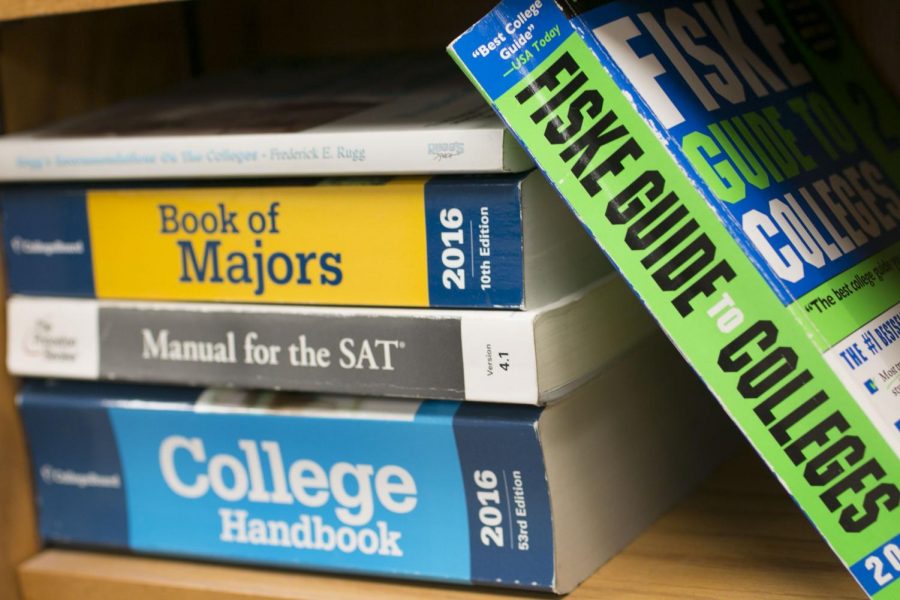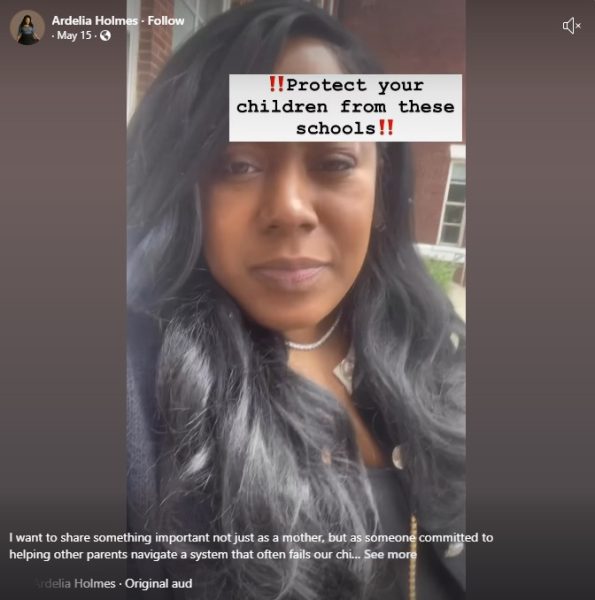Stress for Success
Former and current high school students and staff explain college application stress and share advice
“Guidance counselors and the administration should focus on helping students find schools that fit with who they are as a student rather than what kind of ranking the school has,” senior Emma Duhamel said.
With luck, applying to college will be the most stressful process in a student’s life.
The road to acceptance is tough, but remember: Millions of students travel it — and withstand it — every year. And those who have completed it can offer helpful perspective and advice.
Ally Nordstrom (‘17), a freshman at The Ohio State University, shared in an email that before applying, she grew worried that she hadn’t ensured enough options for her future.
“I would recommend making sure to visit schools, even if you wouldn’t have considered them before. That would create more options and boost your confidence that you’re applying to the right schools,” Nordstrom stated.
One way to find and apply to colleges is through the Common Application, an online program that hundreds of American universities require applicants to use in order to apply. The Common Application requires one essay, but colleges may also require school-specific supplementary essays. These assignments can pile up, especially when applying to more than one college.
“It seems like it’s way too much work and way over the top when you start working on your applications the day Common [Application] opens,” senior Emma Duhamel said. “But actually start the day Common Application opens, because it just makes everything a lot easier when you get it out of the way as soon as possible.” Students applying to college next year can begin completing their applications Aug. 1, 2018.
“The most important thing I realized while applying to college is that it seems like a huge, daunting task, but if you break it up and tackle a little bit more every week, it feels a lot easier,” Nordstrom wrote. “Write an essay, step away from it and work on another application or give yourself a break from the process altogether, and then go back and revise it a couple days later.”
One of the stressful decisions comes with deciding about which topics to write about in the essays.“I think it’s better to have an essay that’s ‘you,’ even if it’s cliche — as in about sports or a mission trip, than an essay that’s unique, but not ‘you’ and you had a hard time writing because you tried too hard to be different,” Shaker graduate Elise LaFramboise (‘17), now at University of Delaware, wrote in an email.
Often, students focus narrowly on attending a particular college instead of broadening their reach. “I wish I had focused more on what kind of student I am rather than looking at a school that I want to fit into,” Duhamel said.
“We talk about the prestige of the college rather than if it’s a good fit for the student. Guidance counselors and the administration should focus on helping students find schools that fit with who they are as a student rather than what kind of ranking the school has,” Duhamel said.
School nurse Paula Damm said that although she didn’t attend a big-name school, she is content with where she studied. “I went to a little school, where I excelled, and then I went and got my masters,” Damm said.
Duhamel also advised future college applicants to not focus on acceptance rates. “It doesn’t matter what the [acceptance rate] is. It just matters if you’re going to be happy coming into school the day where all the seniors wear their college T-shirt,” she said. “If you can be proud of that college T-shirt, then that’s the school you should go to.”
Approximately 20.4 million students were set to attend American colleges or universities in fall of 2017. That’s 5.1 million more students enrolled than in fall of 2000, according to the National Center for Education Statistics.
Each year, seniors are met with the sense that it is getting more difficult to get into college, which sparks a panic in students. This panic induces an onslaught of applications, with some students applying to 20 or more colleges just to feel safe. Because the admission officers are receiving more applications, the acceptance rates go down, which sparks a fresh panic in the next senior class.
“There’s a lot of community pressure. There are a lot of high expectations from the community, from the parents — a lot of high expectations that we put on students, even as educators,” school psychologist Sagar Patel said.
“I feel like the pressure is on students where they feel like they have to create this amazing path,” Patel said.
Damm said that stress can also come from technology. “People have talked about the impact of constantly having a cell phone. Access is increasing stress in everybody, especially teens,” Damm said. “The constant new update, constant bad news — it messes with my head — and I’m an adult. It’s constant communication with very little time to shut it out.”
Often, students will post their acceptances on social media, which can increase pressure on others. Students who don’t post might worry that they will be viewed as less successful than those who did. In addition, students who don’t get into their desired schools might not want to post about it but worry that the absence of information may cause others to look at them differently.
“I feel like the opportunities here at Shaker Heights High School are endless, and when you have endless opportunities, it can also be a double-edged sword kind of situation. I think that might increase the pressure of kids to be really good at everything,” Patel said.
In addition, freshmen created Naviance accounts at the beginning of the school year, forcing the pressure of college onto young high school students earlier than ever. Naviance is an online college application service students use to identify colleges they want to apply to. It allows them to compare their GPAs and other information to those of students who were admitted to schools previously.
Patel explained that pressure on students also increases when they compare themselves to other students who seem to be excelling effortlessly. “It’s important to remember that other people might be struggling. Everything always looks OK on the outside, but we never see how hard people really are working when they’re at home or on the weekends,” he said.
Although it’s hard to maintain perspective about applications, with millions of students applying to college annually, millions of rejections are guaranteed.
Damm said, “The culture is pushing everybody to do so well that failure seems like a horrible thing, and failure is a part of learning.”






